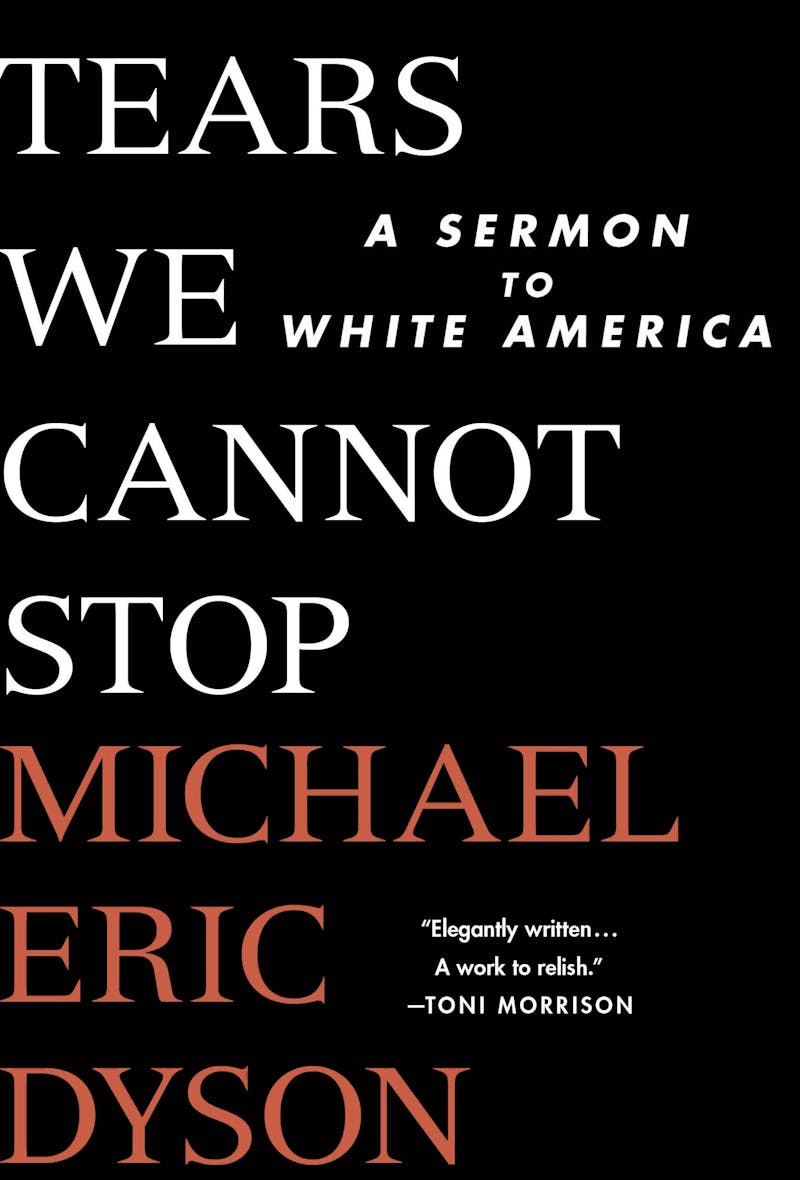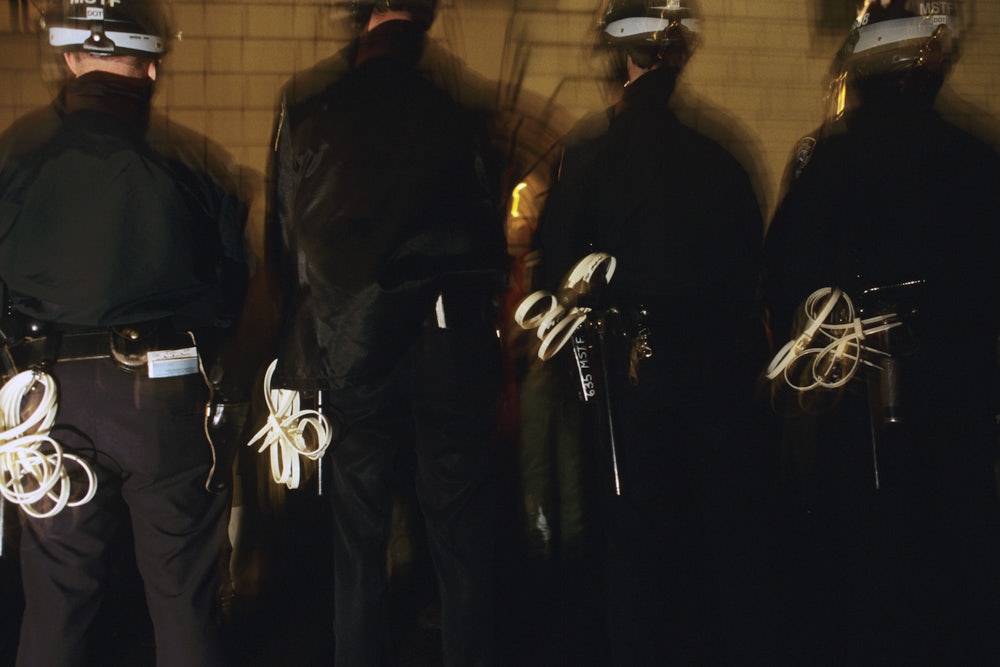Some of you, my beloved white friends, seem genuinely surprised that most black folk fear the police. You are shocked that we think of them as a brutalizing force. You cringe when we say they are out to do everything but serve and protect us. You think we are manufacturing stories about our bad encounters with police. You think that we must have done something wrong to provoke such remorseless cruelty.

When I was seventeen years old, I was with my brother Anthony and a childhood friend, both a year older than me, and we were stopped by four Detroit cops patrolling the neighborhood in an unmarked police vehicle. They amplified their command for us to get out of the car over their blaring megaphone. Then they approached us. One of the officers snatched me out of the backseat. We were no strangers to the menace of the police and naturally assumed the position against our car.
The officer who had yanked me from the car announced that our Ford Galaxie appeared to be stolen. That much was true. It had been stolen and returned to us more than a month prior. But the police had retrieved the car without removing it from their list of heisted vehicles. I wanted to quickly, but carefully, prove that the car had been legally returned, that it belonged to our father, and that we had the proper ownership documents for it. I was quite nervous. Two of the officers had drawn their guns. We had all been frisked.
“Sir, I am reaching into my back pocket to get my wallet that has the car’s registration,” I said.
We learn to modify our speech in the face of cops. We temper our passion and modulate our tone so that we barely register as being there. If you’re old enough, and your birth certificate says “Negro” like mine does—from the early 1900s to the early 1980s all African American birth certificates labeled us as such—you’ll know it’s the same way we were taught to speak to white folk in the south. You make sure to lower your eyes, say yes sir, no smart mouthing, no anger, no resentment, just complete, total compliance. Ever had to endure that humiliation, my friends? We must believe that cops are gods; we are nothing. And the more we remember our nothingness, become experts in the philosophy of nothingness, the better chance we have to survive. Does any of this sound familiar to you? It is our routine, our daily ritual of survival.
Before I could fetch my wallet one of the cops brought the butt of his gun sharply across my back and knocked me to the ground.
“Nigger, if you move again without me telling you to I’ll put a bullet through your fucking head.”
I rose to my feet. Slowly. Deliberately. Showing complete deference. Barely breathing. Barely raising my head above a supplicating bow. Having mastered my body, having, basically, whipped me, lashed me on the plantation, the officer granted me permission to retrieve what felt like my freedom papers—the car’s registration. But that registration was proxy for my breath. The cop permitted me to live. That was the victory.
To be black in America is to live in terror. That terror is fast. It is glimpsed in cops giving chase to black men and shooting them in their backs without cause. Or the terror is slow. Like genocide inside prison walls where folk who should not be there perish.
Maybe the reason you can’t feel our terror is because you don’t live in our skin. We think of the police who kill us for no good reason as ISIS. That shouldn’t surprise you. Cops rain down terror on our heads with relentless fire and make us afraid to walk the streets. At any moment, without warning, a blue-clad monster will swoop down on us to snatch our lives from us and say that it was because we were selling cigarettes, or compact discs, or breathing too much for his comfort, or speaking too abrasively for his taste. Or running, or standing still, or talking back, or being silent, or doing as you say, or not doing as you say fast enough. You do not condemn these cops. To do so, you would have to condemn the culture of whiteness that produced them—that produced you.
We don’t know how or when one of you might pounce. You might be dressed in bright, well-pressed, angry blue with shining accessories meant to club or kill us. Or you might snuff us wearing the jersey of an athlete who was once a poor black boy who made it all the way from the ghetto to your fantasy. You don’t think of him as black. You think of us as nothing else but black. It is blackness you despise or fear or resent or simply don’t understand or care to know. And that difference is the margin of life and death for us.
The cops ran the tags, and less than fifteen minutes later, they concluded what we already knew: The car belonged to my father and we had the right to drive it. They offered no apology, and without a single word, with just a nod, they sent us on our way.
This was hardly the first time I’d had encounters with the cops, all bad, all with the promise of punishment for the slightest gesture of manhood, all with the possibility of violence lurking in the air.
Can you truly say that you can’t understand why most black folk fear, and sometimes hate, the police? I’ve experienced that humiliation on a number of occasions. They’ve embarrassed me in front of my brother and my son. Most painfully, they’ve embarrassed me in front of myself. Every encounter with the police splits us into two selves, one a quiet, brooding figure cursing the cops from within, the other a dawdling doppelgänger, a concrete-staring, shuffling Negro we are ashamed to admit lives inside of us.
Terror and shame go hand in hand. There is fear in realizing that we are helpless to persuade others that we are human. In that moment, there is also deep shame, shame that you do not take our humanity for granted. We are ashamed that there is nothing we can do to keep you from seeing us as worthless.
Could you take that? Could you believe that most cops are good and well-intentioned when the history of harm forever hangs above your heads? Can you honestly say that if we just comply with the cops’ wishes that we’ll be safe? How many more black folk do you have to see get sent to their deaths by cops while doing exactly what they were told before you’ll believe us? You’ve seen the video of the young black man in South Carolina who goes to shot for no other reason than he is who he is—a black male, a ferocious subversion of all that is decent and humane and worthy of space on earth.
If you’re honest you’ll see that the police have never viewed black folk as human beings, because the law that they are charged to enforce has never seen us as human beings. And the Constitution that the law rests on did not write us in as fully human. How can we conclude anything different? How can you?
From Tears We Cannot Stop: A Sermon to White America, by Michael Eric Dyson, from St. Martin’s Press.
